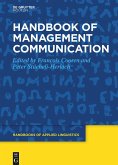The concept of polarization has become an important topic of interest in politics, society, and discourse around the world today. In the European Union (EU), polarizing rhetoric has driven politics into divided camps on issues ranging from immigration to economic integration. In the United States, polarization has become a universal buzzword, and significant research has been done on it as a political and sociological phenomenon. But there has been little scholarly work on polarization as a communicative phenomenon since the late 1970s.
At the same time, holes remain in contemporary rhetorical theory regarding the concept of the orator. In short, the discipline lacks a clearly defined category to deal with strategic communication by collective entities such as social and political movements.
This work fills both gaps at once. It focuses on polarization as a rhetorical strategy that seeks to create division and solidarity in audiences. In doing so, it establishes and develops new theoretical categories for contemporary rhetoric, updates and refines existing work on polarization as a communicative phenomenon, and illustrates the utility of new concepts by providing a case study involving the tea party network in the United States.
At the same time, holes remain in contemporary rhetorical theory regarding the concept of the orator. In short, the discipline lacks a clearly defined category to deal with strategic communication by collective entities such as social and political movements.
This work fills both gaps at once. It focuses on polarization as a rhetorical strategy that seeks to create division and solidarity in audiences. In doing so, it establishes and develops new theoretical categories for contemporary rhetoric, updates and refines existing work on polarization as a communicative phenomenon, and illustrates the utility of new concepts by providing a case study involving the tea party network in the United States.








